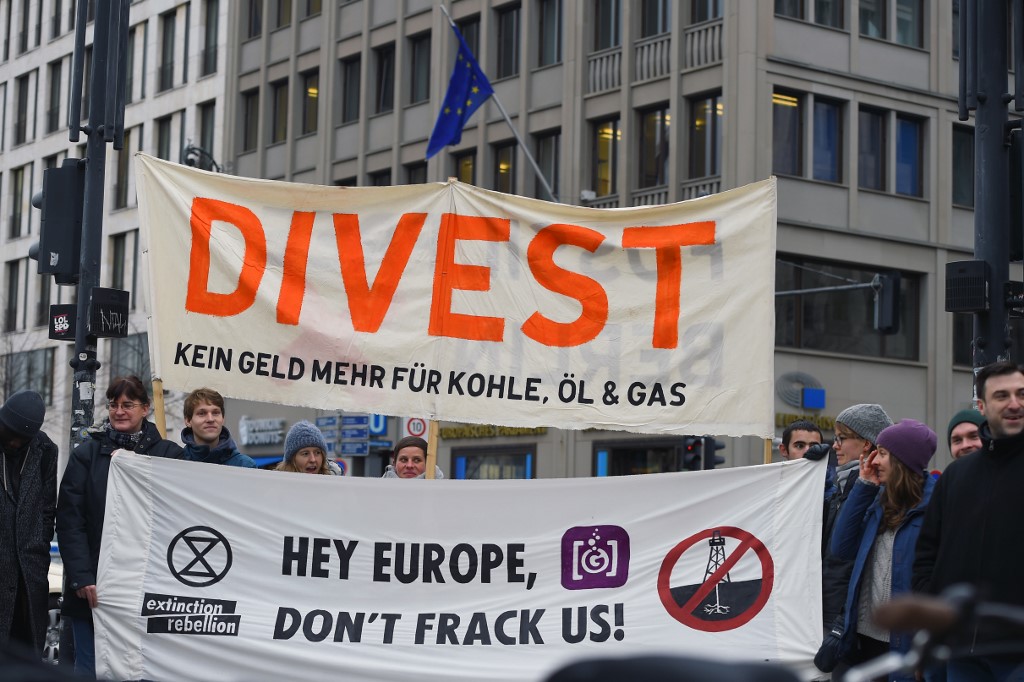Rich nations have used banks and development programmes to funnel at least $77 billion in each of the last three years to oil and gas projects despite their commitment under the 2015 Paris accord to slash greenhouse gas emissions, new analysis showed on Wednesday.
Despite committing to limit global temperature rises to “well below” two degrees Celsius under the Paris deal, G20 countries are still providing three times as much money each year to fossil fuel projects as they are to clean energy, a report by the watchdog Oil Change International showed.
They finance existing and new energy projects through credit export agencies, which provide government-backed loans and guarantees to corporations, and through international development programmes.
This makes the money trail harder to track than taxpayer subsidies – which separately amount to around $80 billion per year.
Authors of the research, which was endorsed by more than 30 environmental groups, said it was crucial that governments end the practice of propping up oil and gas in their post-Covid-19 economic stimuli.
“G20 countries continue to subsidise the fossil fuel industry even as it makes bad business decisions that hurt people and the planet,” Kate DeAngelis, senior international policy analyst at Friends of the Earth US, said.
“Our planet is hurtling towards climate catastrophe and these countries are pouring gasoline on to the fire to the tune of billions.”
China, Japan, Canada and Korea Worst Offenders
The analysis showed that China, Japan, Canada and South Korea were the worst offenders, using credit agencies and development banks to funnel more than $50 billion to fossil fuels each year.
In order to meet the more ambitious goal of the Paris deal – a 1.5C temperature rise cap – the United Nations says emissions from energy must fall 7.6% each year through 2030.
A study last week in Nature Climate Change said the coronavirus pandemic was likely to see emissions fall 7% in 2020 – the largest annual drop since World War II. But authors of that study warned that the drop in emissions was likely to be temporary, if there aren’t “structural changes in the economic, transport or energy systems”.
‘Terminal Decline’
As governments ready economic recovery plans, the oil and gas industry has called for handouts to help power their comeback.
“You can tell governments feel pressure to not do bailouts in a really obvious way and so we are seeing a lot of support for the fossil fuel industry in much sneakier ways,” Bronwen Tucker, research analyst at Oil Change International and lead report author, said.
“It’s much harder to raise the alarm to the public which is extremely concerned about this issue, especially during a pandemic.”
Tucker said larger energy majors were taking advantage of the economic crisis, buying up smaller oil and gas firms and consolidating their market share.
“Depending on the political winds there are lots of ways this could end up a less equal place,” she said. “It’s an industry in systemic decline but that ride to the bottom is definitely not yet determined.”
Record $400bn Drop in Investment, Shale-Oil Hit
Meanwhile, the energy industry is set to suffer a record drop in investment due to the coronavirus fallout, the IEA said on Wednesday.
The Paris-based International Energy Agency (IEA) estimated in its annual report on energy investments that the plunge will be of the order of one-fifth from 2019 levels, or almost $400 billion, as firms slash spending amid slumping demand for energy.
Shale oil producers that catapulted the United States to the world’s top crude nation stand to suffer the worst decline, the IEA said.
“All the energy sectors – oil, gas, renewables – everything is affected but the biggest impact is on shale oil,” the agency’s director Fatih Birol said. “Total oil investments we expect to decline one third this year whereas the shale industry will see a decline of about 50%.”
Spending on renewable power projects is expected to fall by only around 10% for the year, the report said. “Even though this ‘clean’ spending is set to dip in 2020, its share in total energy investment is set to rise,” it noted.
But it noted “these investment levels remain far short of what would be required to put the world on a more sustainable pathway,” estimating that spending on renewable power would need to double by the late 2020s.
Crisis To Come?
The IEA has long warned that insufficient investment may leave the industry unable to meet rising demand.
“There is a risk that today’s cutbacks lead to future market imbalances, prompting new energy price cycles or volatility,” it said.
If oil investment stays at 2020 levels then supply in 2025 would be 9 million barrels per day less than had been expected, the IEA estimated, which could mean tight markets and higher prices if demand resumes in a pre-crisis rising trajectory.
While some may see a drop in spending on oil as a positive development, Birol warned of negative consequences.
“We hope to see a clean energy transition, this should be an orderly energy transition, well designed so it doesn’t cause any crisis, any shock,” he said. “It shouldn’t be as a result of Covid, it should be as a result of the right energy policies.”
Coal in Asia
Birol signalled in this regard a concerning jump in approvals for coal projects in Asia.
“The findings of our reports are worrying but my chief concern is that the lockdown we have around the world may lead to a lock in of inefficient and old technologies, especially in the emerging world where there are huge debt and financing problems,” he said.
The IEA chief called on governments to favour clean energy projects in their coronavirus recovery plans.
“If the governments include the right energy policies in order to accelerate the clean energy transition, we may well see a rebound in clean energy.”
• AFP with additional editing by Jim Pollard
This report was updated for style purposes on Dec 28, 2021.
























